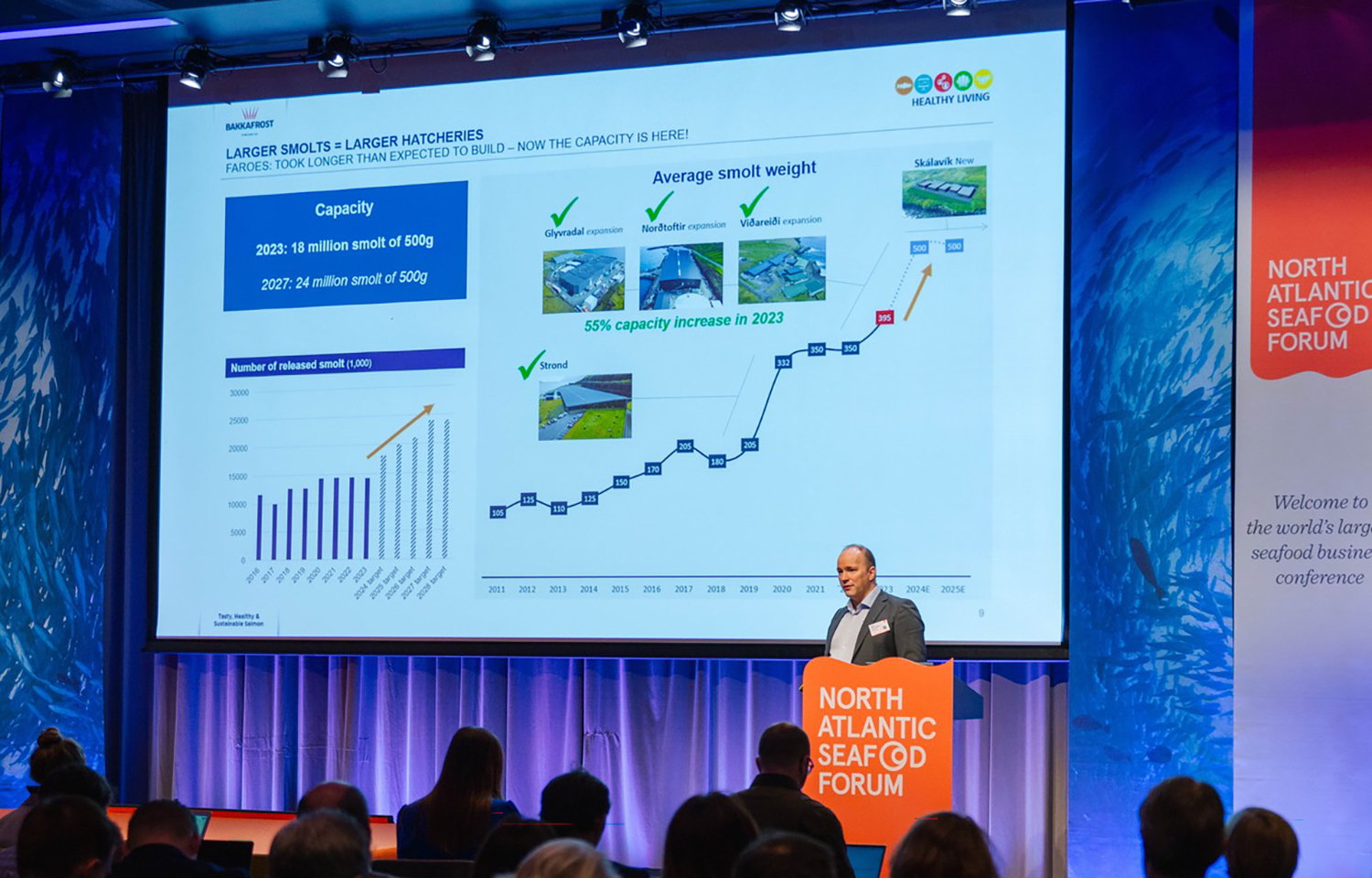Faroe Islands-headquartered salmon farmer Bakkafrost Group has had to contend with several issues in its bid to turn its Scottish operations around, and while these operations are still “in red numbers,” there are strong indications that the future is bright in Scotland, Bakkafrost CFO Høgni Dahl Jacobsen recently said at the 2024 North Atlantic Seafood Forum (NASF) in Bergen, Norway.
“In the Faroes, we have a very strong operation, high-quality assets, and the longest integrated value chain in the industry. We are the only producer of fish oil and meal that we use for our own production of fish feed. [We have] highly efficient, strong margins and strong farming KPIs,” Jacobsen said. “This is the operation that we wanted to copy to Scotland.”
Bakkafrost moved into Scotland with the 2019 acquisition of the Scottish Salmon Company. Jacobsen acknowledged the company has found Scotland to be much more challenging environment to farm in than the Faroes, with greater biological threats.
“[Scottish Salmon Company] was also heavily under-resourced,” he said.
Since then, Bakkafrost has made a lot of changes to these operations, Jacobsen said. In addition to introducing its own feed, which has improved the quality and price of its fish, it has upgraded some of its technology, including the introduction of predator-proof nets and better vaccines, while also implementing a “massive upscale” of the operations’ freshwater treatment capacity, he said.
“The results are quite clear; if we go back two years to 2021 and compare with where we are today, we have an 80 percent reduction on the parasite load, so there’s much improved gill health. Also, 98 percent of our losses to seal attacks have gone, and there’s been a 68 percent reduction in sea lice levels, and if we look at our share of the total mortality in the industry in Scotland, it has dropped from 46 percent in 2021 to 20 percent last year,” Jacobsen said. “There are positive signs from the operations in Scotland. Even though we still make negative numbers, we believe we’re on the right path, and many of the challenges that we saw when we acquired the company have been dealt with efficiently.”
The main challenge that still exists for all Scottish salmon farmers is micro-jellyfish blooms, and Jacobsen admitted the industry has especially struggled to deal with this over the past three years, particularly during third quarters, when waters are warmer.
Part of Bakkafrost Scotland’s jellyfish risk management strategy will see it harvest 70 percent of its volume ahead of Q3 2024. These operations will also become increasingly reliant on the group’s own higher-quality smolt.
Further down the line, Bakkafrost Scotland will start introducing …








